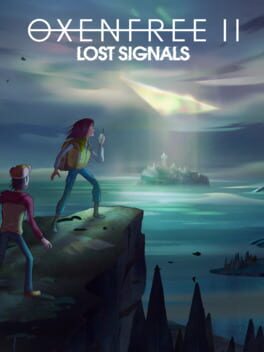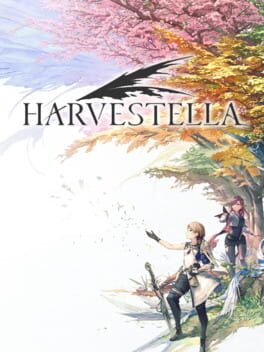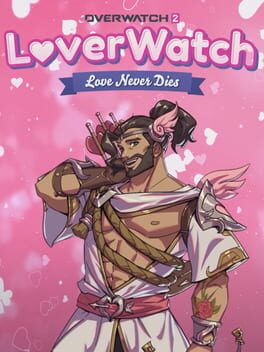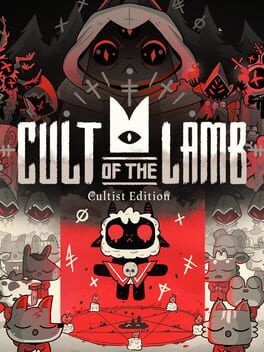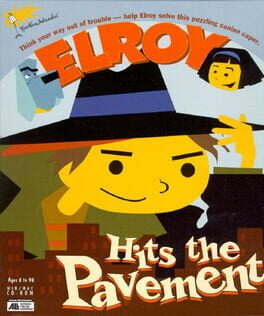madisleeps
10 reviews liked by madisleeps
Baldur's Gate 3
2020
Baldur's Gate 3
2020
Baldur's Gate 3
2020
Baldur's Gate 3
2020
Baldur's Gate 3
2020
There is a lot of good here. The story creatively builds upon that of the first game, keeping the charm and intrigue with more strong characters. It adds a few new and interesting mechanics as well. And the dialogue, arguably the main mechanic of the game, is written well and wonderfully performed. I also found several moments that were really poignant and had some cool things to say about relationships and the purpose of life.
That said, I was left wanting a bit more from the game. I often felt lost or lacking context when lines of dialogue would make direct reference to a previous bit of information that I must have missed due to the nature of the branching narrative options. It left me feeling disjointed, as though I had not seen the whole picture. I gave it a second playthrough, as the game is not too long, which certainly helped build up the context I lacked, but both playthroughs I felt as if I had not gotten the full experience. But, with a trippy time warping story like this one, maybe that's the whole point and multiple playthroughs are supposed to be required to get the full picture!
That said, I was left wanting a bit more from the game. I often felt lost or lacking context when lines of dialogue would make direct reference to a previous bit of information that I must have missed due to the nature of the branching narrative options. It left me feeling disjointed, as though I had not seen the whole picture. I gave it a second playthrough, as the game is not too long, which certainly helped build up the context I lacked, but both playthroughs I felt as if I had not gotten the full experience. But, with a trippy time warping story like this one, maybe that's the whole point and multiple playthroughs are supposed to be required to get the full picture!
Harvestella
2022
A fatigued yet kind-hearted love letter to humanity and its suffering across the ages.
Harvestella works within a framework of an eclectic mix of influences; Rune Factory would be an obvious choice, but the game goes far beyond the "farming sim + combat" elements of its gameplay: From the level design and combat mechanics of Etrian Odyssey and Final Fantasy XIV to the narrative chops of Nier, Harvestella wears its influences on its sleeve, to the point where it feels like a collection of the passion the devs have for the JRPG genre. But Harvestella rises far beyond a simple facsimile of the giants of the medium that it stands on the shoulders of, knowing exactly why it is that these game mechanics work and understanding how to weave them together into a tight experience. Etrian Odyssey works its level design magic on the way it utilizes TP to condition exploration: Do you keep going when you are low on resources and risk death or retire early from the expedition to safety? Harvestella adds this philosophy to its farm work aspect: Do you keep going and risk death before finding a shortcut, or will you risk interacting with that event hoping it will heal you? Or will you use the food you have obtained from your farm to give you the literal energy to keep going? Do you, then, plan out your farm to yield crops suited to your exploration needs, or perhaps more lucrative crops so you can buy upgrades for your farm? Will you spend the day exploring that new dungeon you just unlocked, or will you go back to a previous one to get the materials needed to craft items that will allow you to build shortcuts or clear new paths? None of these design elements are unique to Harvestella of course, but they are all woven together with the good judgment needed to make it stand next to its storied peers. And, thanks to the relative simplicity of all its systems, the game never feels overbearing in the things you can do, ironically making it a far more "relaxing" game than more complex farming sims.
But what ends up being most memorable about the game is no doubt its story. This is where the game digs its heels deep in choosing to be a "proper" JRPG above being a farming sim, delivering a melancholic story about grief and pain, and what comes after that. All the characters in Harvestella are defined by loss, and both the main story and individual character stories deal with that pain; the pain of connection, the pain of losing someone you love, the pain of never having known a proper home, the pain of betrayal, and the pain of humanity itself across time and space, condemned eternally to self-destruction. Harvestella makes use of the humanism at the heart of the genre to explore all these and more, in the process sinking its teeth in plenty more of themes ranging from spiritualism to the romanticism of scientific exploration. It may not be the most expertly woven story out there, but it is nevertheless filled to the brim with passion and kindness.
All of this is then capped off with Go Shiina's FANTASTIC soundtrack, offering his best work to date: From battle tracks such as this to area themes such as this, there is not a single track that is not memorable.
Game also deserves a shoutout for being one of the extremely few games out there to allow the player character to be non-binary, which was a nice surprise to see. However, you should still play the game as a girl so you can experience it as the greatest sf yuri love story ever told as it was intended. I Understand the devs' vision, do not question me.
Harvestella is ultimately a weird game that defies expectation, and perhaps its middling reception is owed to this. It is a game that one has to meet halfway and understand how and why it does what it does. If you can do that, you will find that its big heart will earn it a place in yours.
Harvestella works within a framework of an eclectic mix of influences; Rune Factory would be an obvious choice, but the game goes far beyond the "farming sim + combat" elements of its gameplay: From the level design and combat mechanics of Etrian Odyssey and Final Fantasy XIV to the narrative chops of Nier, Harvestella wears its influences on its sleeve, to the point where it feels like a collection of the passion the devs have for the JRPG genre. But Harvestella rises far beyond a simple facsimile of the giants of the medium that it stands on the shoulders of, knowing exactly why it is that these game mechanics work and understanding how to weave them together into a tight experience. Etrian Odyssey works its level design magic on the way it utilizes TP to condition exploration: Do you keep going when you are low on resources and risk death or retire early from the expedition to safety? Harvestella adds this philosophy to its farm work aspect: Do you keep going and risk death before finding a shortcut, or will you risk interacting with that event hoping it will heal you? Or will you use the food you have obtained from your farm to give you the literal energy to keep going? Do you, then, plan out your farm to yield crops suited to your exploration needs, or perhaps more lucrative crops so you can buy upgrades for your farm? Will you spend the day exploring that new dungeon you just unlocked, or will you go back to a previous one to get the materials needed to craft items that will allow you to build shortcuts or clear new paths? None of these design elements are unique to Harvestella of course, but they are all woven together with the good judgment needed to make it stand next to its storied peers. And, thanks to the relative simplicity of all its systems, the game never feels overbearing in the things you can do, ironically making it a far more "relaxing" game than more complex farming sims.
But what ends up being most memorable about the game is no doubt its story. This is where the game digs its heels deep in choosing to be a "proper" JRPG above being a farming sim, delivering a melancholic story about grief and pain, and what comes after that. All the characters in Harvestella are defined by loss, and both the main story and individual character stories deal with that pain; the pain of connection, the pain of losing someone you love, the pain of never having known a proper home, the pain of betrayal, and the pain of humanity itself across time and space, condemned eternally to self-destruction. Harvestella makes use of the humanism at the heart of the genre to explore all these and more, in the process sinking its teeth in plenty more of themes ranging from spiritualism to the romanticism of scientific exploration. It may not be the most expertly woven story out there, but it is nevertheless filled to the brim with passion and kindness.
All of this is then capped off with Go Shiina's FANTASTIC soundtrack, offering his best work to date: From battle tracks such as this to area themes such as this, there is not a single track that is not memorable.
Game also deserves a shoutout for being one of the extremely few games out there to allow the player character to be non-binary, which was a nice surprise to see. However, you should still play the game as a girl so you can experience it as the greatest sf yuri love story ever told as it was intended. I Understand the devs' vision, do not question me.
Harvestella is ultimately a weird game that defies expectation, and perhaps its middling reception is owed to this. It is a game that one has to meet halfway and understand how and why it does what it does. If you can do that, you will find that its big heart will earn it a place in yours.

